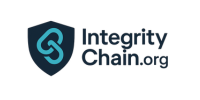South Korea: Anti-Corruption and Civil Rights Commission Model

South Korea stands out in Asia as a country with one of the most structured and state-supported whistleblower programs. With an emphasis on confidentiality, monetary rewards, and legal protection, its approach is managed primarily through the Anti-Corruption and Civil Rights Commission (ACRC). This post explores how the Korean model incentivizes whistleblowing and safeguards those who speak out, featuring case studies where whistleblowers were both protected and rewarded.
The Legal Framework
Act on the Protection of Public Interest Whistleblowers (2011)
Scope of Protection:
- Covers disclosures related to public health, safety, environment, consumer interests, and fair competition.
- Applies to both public and private sector wrongdoings.
Key Features:
- Whistleblowers are protected from dismissal, discrimination, or other disadvantages.
- Disclosures can be made anonymously.
- Whistleblowers can receive monetary rewards up to 2 billion KRW (~$1.5 million USD).
- The ACRC investigates, processes rewards, and even provides legal and psychological support.
Case Study: Real Estate Fraud Exposure
Background:
An anonymous civil servant exposed a large-scale real estate corruption case involving fraudulent use of insider information for speculative purposes.
Outcome:
- The report led to disciplinary action against over 50 government employees.
- The whistleblower received ₩350 million (~$300,000 USD) as a reward.
Impact:
- Demonstrated the financial viability and safety of reporting under the ACRC model.
- Boosted public trust in government anti-corruption mechanisms.
ACRC’s Role: More Than Just a Regulator
The Anti-Corruption and Civil Rights Commission:
- Operates a whistleblower hotline and secure online portal.
- Reviews claims for both legitimacy and potential retaliation.
- Can recommend that an employer repeal or rectify any disadvantage the whistleblower suffered.
- Facilitates rewards based on the degree of contribution and public interest value of the information disclosed.
Strengths of the South Korean Model
- Government-Managed Protection: Centralized oversight ensures consistent application of the law.
- Monetary Rewards: Clear, scaled incentives based on damage prevented and information uniqueness.
- Anonymous Reporting: Encourages disclosures from individuals who may fear retaliation or professional consequences.
- Support Services: Legal aid and psychological counseling for whistleblowers are provided through the ACRC.
- Public Reporting: Annual data on whistleblowing outcomes is made publicly available, increasing transparency.
Challenges and Limitations
- Retaliation Still Occurs: Despite the law, some whistleblowers face informal retaliation or blacklisting.
- Cultural Barriers: Traditional values that discourage “tattling” or confronting authority can still deter whistleblowing.
- Limited International Reach: While strong domestically, the system doesn’t extend protections to Korean nationals working abroad or cross-border corruption.
Global Lessons from South Korea
- The ACRC’s combination of centralized authority, anonymity, and financial rewards offers a model that other countries can emulate.
- Its approach balances legal deterrents for retaliation with positive reinforcement through recognition and compensation.
- As countries debate how to incentivize ethical disclosures, South Korea’s system shows that rewarding honesty can work.
Conclusion
South Korea has emerged as a leader in whistleblower protection in Asia. By offering real financial rewards and centralized, transparent oversight through the ACRC, it empowers citizens to speak up against corruption without fear. As seen in successful real estate and procurement disclosures, when protection is real and rewards are tangible, integrity wins.



